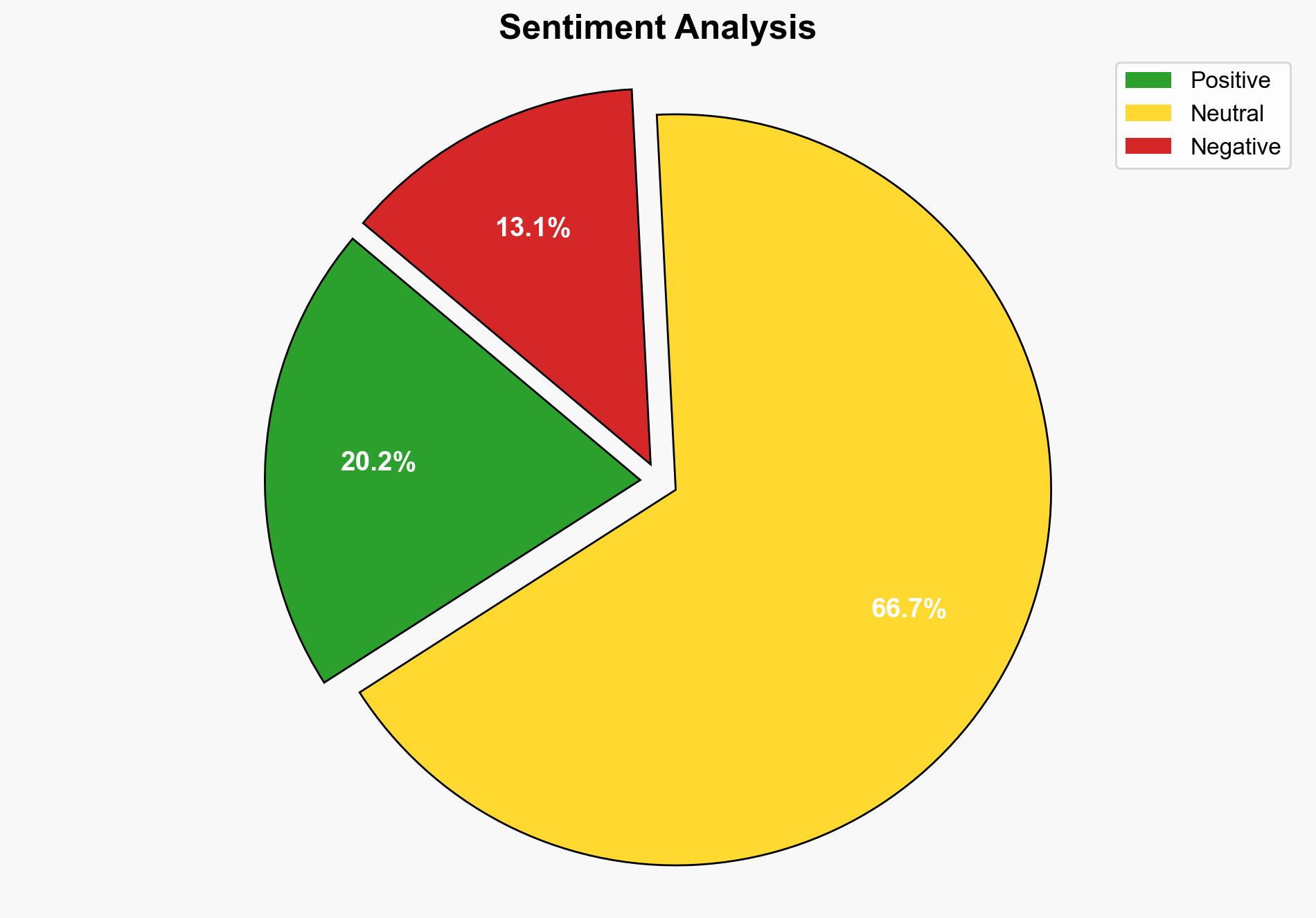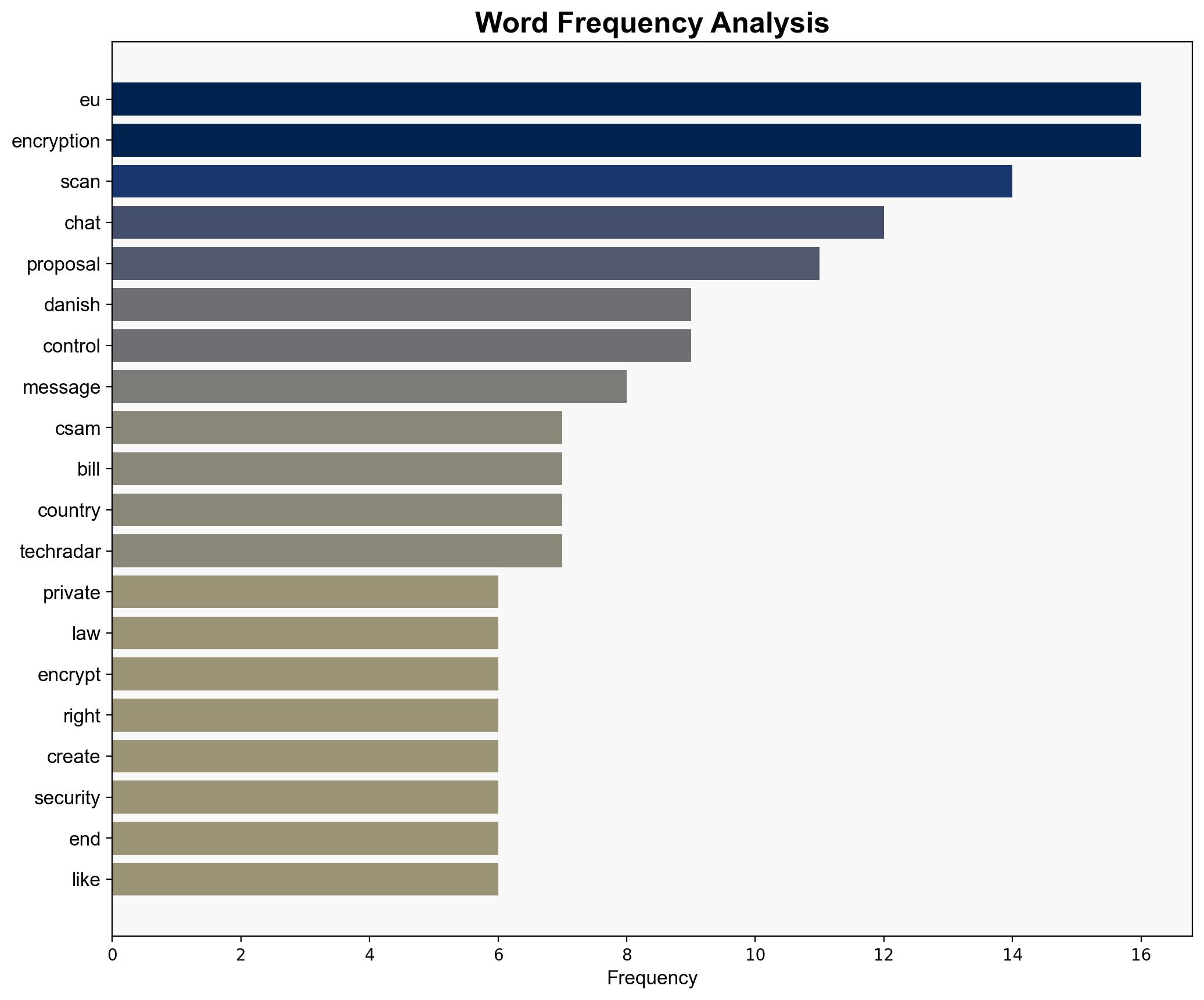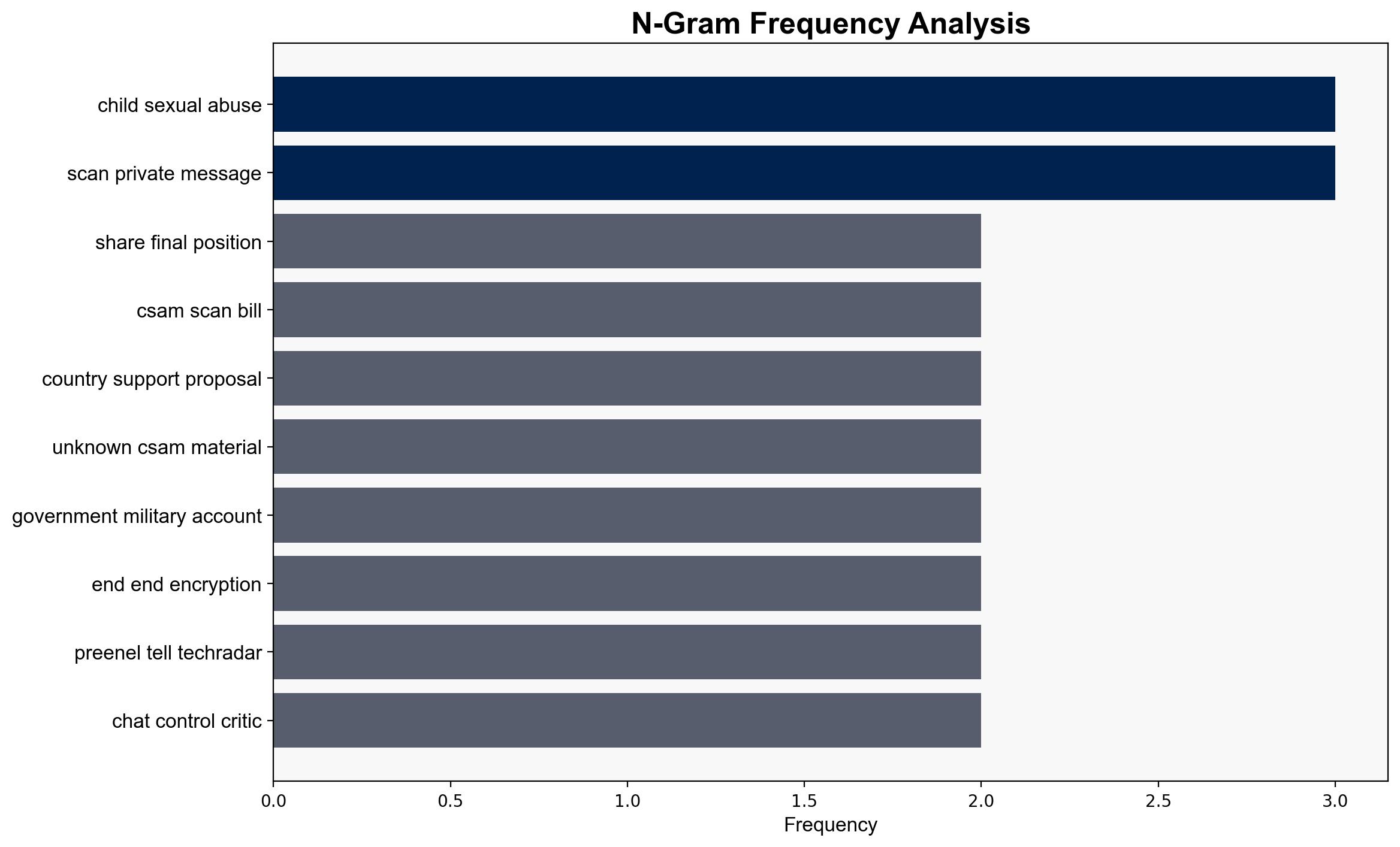The EU has never been closer to agreeing on the scanning of your private chats but how did we get here – TechRadar
Published on: 2025-09-11
Intelligence Report: The EU has never been closer to agreeing on the scanning of your private chats but how did we get here – TechRadar
1. BLUF (Bottom Line Up Front)
The European Union is on the verge of implementing legislation to mandate the scanning of private chats for child sexual abuse material (CSAM). The most supported hypothesis suggests that the EU will adopt a compromise that balances privacy concerns with security needs, but significant opposition remains. Confidence in this assessment is moderate due to ongoing debates and technical challenges. Recommended action includes engaging with EU stakeholders to influence the final decision towards a balanced approach that safeguards both privacy and security.
2. Competing Hypotheses
1. **Hypothesis A**: The EU will pass the legislation mandating the scanning of private chats, prioritizing security over privacy.
– **Supporting Evidence**: The Danish proposal has gained traction, with several countries supporting the initiative. The EU’s long-standing goal to combat CSAM adds pressure to enact such measures.
2. **Hypothesis B**: The EU will fail to pass the legislation due to strong opposition from privacy advocates and technical experts.
– **Supporting Evidence**: Significant backlash from cryptography experts and digital rights groups highlights the potential ineffectiveness and privacy risks of the proposed measures. Previous attempts have failed due to similar concerns.
Structured Analytic Technique: Using Analysis of Competing Hypotheses (ACH), Hypothesis A is moderately more supported due to political momentum and the urgency to address CSAM, despite technical and ethical concerns.
3. Key Assumptions and Red Flags
– **Assumptions**:
– The EU prioritizes security measures over privacy concerns.
– Technical solutions for effective scanning without compromising encryption are feasible.
– **Red Flags**:
– Strong opposition from privacy advocates could lead to legal challenges.
– Inconsistent data on the effectiveness of scanning technologies.
– Potential underestimation of public backlash against privacy intrusions.
4. Implications and Strategic Risks
– **Implications**:
– Passage of the legislation could set a precedent for other regions, impacting global privacy standards.
– Failure to pass could embolden privacy advocates and tech companies to resist similar measures elsewhere.
– **Strategic Risks**:
– Economic: Potential impact on tech companies operating in the EU.
– Cyber: Increased vulnerability if encryption is weakened.
– Geopolitical: Strain on EU relations with privacy-focused countries.
– Psychological: Erosion of public trust in digital communications.
5. Recommendations and Outlook
- Engage with EU policymakers to advocate for a balanced approach that addresses security needs without compromising privacy.
- Monitor developments closely to anticipate potential shifts in public opinion and legal challenges.
- Scenario Projections:
– **Best Case**: A compromise is reached that satisfies both security and privacy advocates.
– **Worst Case**: Legislation passes without adequate safeguards, leading to widespread legal and public backlash.
– **Most Likely**: A delayed decision as further negotiations attempt to reconcile opposing views.
6. Key Individuals and Entities
– Patrick Breyer: German Pirate Party member and digital rights advocate.
– Bart Preneel: Belgian cryptographer and professor, signatory of the open letter opposing the proposal.
7. Thematic Tags
national security threats, cybersecurity, privacy rights, EU legislation, digital communication




